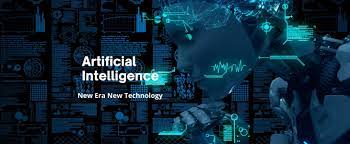
Bionics Engineering
The field of bionics engineering encompasses the application of principles and techniques from engineering and biological sciences in order to develop innovative solutions and technologies for medical and healthcare purposes. Bionics engineering involves the design, development, and implementation of prosthetics, medical devices, and bio-electronic systems that mimic or enhance human functionsand improve the quality of life for individuals with disabilities or medical conditions. This field combines principles from various disciplines, including mechanical, electrical, and biomedical engineering, along with biology and medicine. Bionics engineering is a rapidly growing field with immense potential in India, aiming to address the complex challenges of supporting and enhancing human physical capabilities.
Role Desciption
Bionics engineers play a pivotal role in translating scientific research into practical applications. Key responsibilities include:
- Designing and developing advanced prosthetics and implants.
- Conducting research to understand human physiology and biomechanics.
- Collaborating with medical professionals and teams to devise individualized solutions.
- Testing and evaluating the performance and effectiveness of bionic systems.
- Ensuring compliance with safety standards and regulations.
- Contributing to the field through publications and presentations.
Eligibility
- 10+2 in science with PCM
- Bachelor's degree in biomedical engineering/ mechanical engineering/electrical engineering
- Master's degree in bionics engineering or a specialized area within this field
- Ph.D. (optional)
Pros/Cons
Pros:
- Opportunities to develop life-changing technologies.
- The ability to contribute to improving the quality of life for individuals.
- Continuous learning and involvement in cutting-edge research.
- Lucrative salary potential and growth opportunities.
- Multi-disciplinary work environment.
Cons:
- High-pressure situations that may arise due to the critical nature of medical applications.
- Funding limitations for research projects.
- Constant need for keeping up with advancements and technological changes.
Leading Professions
View All
Biomedical Engineer
Biomedical engineers are...
5.0LPA

Neural Engineer
Neural engineers work at...
15.0LPA

Prosthetist/Orthotist
Prosthetists and orthoti...
5.0LPA

Bioinstrumentation Engineer
Bioinstrumentation engin...
5.0LPA

Biomaterials Engineer
Biomaterials engineers w...
10.0LPA

Genetic Engineer
Genetic engineers utiliz...
6.0LPA

Artificial Intelligence Specialist
Artificial intelligence ...
20.0LPA

Human-Machine Interface Specialist
Human-machine interface ...
20.0LPA
CAREER VIDEOS
Career Path
10+ 2 in science stream with PCM
1 Steps
Skills
Recruitment Area
Universities and colleges ,
Biotechnology and pharmaceutical companies ,
Research institutes and universities ,
Rehabilitation centers and hospitals ,
Prosthetics and orthotics manufacturing companies ,
Medical device companies ,
Government agencies focused on healthcare and medical research .
Recruiters
Indian Institutes of Technology (IITs) ,
National Institute of Biomedical Imaging and Bioengineering (NIBIB) ,
All India Institute of Medical Sciences (AIIMS) ,
Sree Chitra Tirunal Institute for Medical Sciences and Technology ,
Endolite India Ltd ,
Essilor India .
Explore Colleges
Exams & Tests
Interested? Take the next step for this career
10+ 2 in science stream with PCM
- 1 Steps
Skills Needed
Exams and Tests
Recruitment Area
Universities and colleges ,
Biotechnology and pharmaceutical companies ,
Research institutes and universities ,
Rehabilitation centers and hospitals ,
Prosthetics and orthotics manufacturing companies ,
Medical device companies ,
Government agencies focused on healthcare and medical research .
Recruiters
Indian Institutes of Technology (IITs) ,
National Institute of Biomedical Imaging and Bioengineering (NIBIB) ,
All India Institute of Medical Sciences (AIIMS) ,
Sree Chitra Tirunal Institute for Medical Sciences and Technology ,
Endolite India Ltd ,
Essilor India .



















